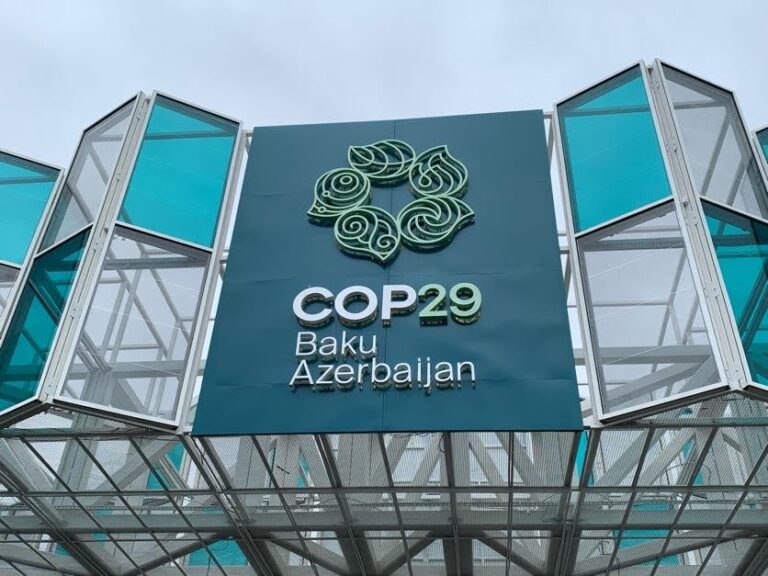On November 20, at the COP29 climate summit in Baku, Azerbaijan, the Call to Action for No New Coal initiative was launched, aiming to solidify commitments to halt the development of new unabated coal power plants. 25 countries and the European Union have signed on to demonstrate their commitment to phase-out new coal infrastructure and urged other countries to follow and work together to encourage the international community to move away from coal-fired power generation, which emits large amounts of greenhouse gases, as soon as possible.
The following day, representatives from EU, Canada and other countries formally announced their intention to update the next Nationally Determined Contributions (NDCs) to be consistent with the Paris 1.5°C target. European Commissioner for Climate Action, Wopke Hoekstra held a joint conference with representatives of like-minded and ambitious countries, but the Japanese representative did not participate.
No room for new coal-fired power plants
According to the scenario presented by the Intergovernmental Panel on Climate Change (IPCC), it is clear that to achieve the 1.5°C target, global coal and fossil fuel use must be reduced, and that there is no room for new unabated coal. The number of countries with coal-fired power under development (pre-construction and construction) has nearly halved from 75 in 2014 to just 40 in 2024. However, global coal production increased in 2023, a growth of about 2% over 2022, and coal power generation increased 1.9% in 2023 to 10,690 terawatt-hours (TWh), a record high. These numbers show that coal continues to be the world’s largest source of power generation.
At COP28 (held in Dubai in December 2023), “transition away from fossil fuels” was one of the focal points, and the countries – including Japan – agreed. At the G7 Summit in 2024, ministers agreed to “phase out existing unabated coal power generation in [their] energy systems during the first half of 2030s, or in a timeline consistent with keeping a limit of 1.5°C temperature rise within reach, in line with countries’ net-zero pathways.” However, even though Japan has publicly stated that it will not build any new coal-fired power plants, it is encouraging the development of technologies to extend the life of existing coal-fired power plants based on a unique interpretation of “abatement” to include co-firing coal with ammonia/hydrogen, even if the emission reductions from doing this do not meet the reduction rate defined by the IPCC. Additionally, Japan is also building and replacing gas-fired power plants as a transition energy source.
Japan nowhere to be seen in both the Coalition and the joint press release
The Call to Action for No New Coal includes the EU and 25 countries, including the United Kingdom, which has already retired all of its domestic coal-fired power plants, and coal-producing countries such as Australia, Canada, France, Germany, Italy, and the Netherlands, which have pledged not to build new coal-fired power plants and include this pledge in their national plan on climate change and energy strategies, including their NDC. Among the G7 countries, only Japan and the U.S. have decided not to participate.
Signatory countries:
Angola, Australia, Austria, Belgium, Canada, Colombia, Cyprus, Czech Republic, Denmark, Dominican Republic, Ethiopia, France, Germany, Italy, Malta, Morocco, the Netherlands, Norway, Slovakia, Slovenia, Sweden, UK, Uganda, Uruguay, Vanuatu.
Japan also did not join the Joint Press Release on 1.5°C-aligned Ambition in NDCs Toward Net Zero. It is reported that the Japanese government is moving forward in setting its next NDC emission reduction targets to 60% below the 2013 level in 2035. However, this is not an ambitious target at all; an analysis by the international environmental think tank Climate Action Tracker concludes that Japan should reduce emissions by 81% in 2035 compared to 2013 levels.
At COP29, Japan continues to receive “Fossil of the Day” awards
On November 15, COP29’s first Fossil of the Day award was awarded to the countries of the Group of Seven (G7), including Japan. The reason for the award was because the G7 have been spending the past 20 years “dodging, skirting, and running away” from their fiscal responsibility to pay their growing climate finance debt. COP29 has been labelled the “finance COP”, and the importance of climate finance has been pointed out as it’s necessary to unlock ambition. Developing countries in particular can expect to raise their ambition if they have adequate financial support to do so. Developed countries must take the lead in strengthening measures to tackle climate change, raising ambition in their NDCs, and increasing climate finance to bring the world closer to achieving global targets. Additionally, it was pointed out that Japan has to raise its emission reduction targets to be in line with the Paris 1.5ºC goal.
Furthermore, on November 22 before the close of the COP summit, the “Colossal Fossil” award – the “biggest and baddest” fossil award of COP29 – was given to 24 countries, including Japan. This time, it was pointed out that the actions of developed countries at COP29 made it clear that are trying to escape their legal obligations to pay the finance necessary for the world to limit temperature rise to 1.5°C, despite the fact that they are responsible for causing the climate crisis and are still financing large amounts of fossil fuels.
The United Kingdom already has achieved coal exit and submitted a more ambitious NDC in line with their obligations to meet 1.5℃. Other G7 members, including Japan, and developed countries have to prepare and submit NDCs with increased reduction targets to be consistent with the 1.5°C target and move forward with measures that reflect a pathway to enable the implementation of the Global Stocktake (GST).
Taking responsibility as a member of the G7
In addition to the increasing global unity toward a coal-free world, other bright news is also coming in. At the G20 Summit in Rio de Janeiro, which was held in Brazil around the same time as COP29 (November 17-19), Indonesian President Prabowo Subianto declared an ambitious goal to “phase out all fossil fuel power plants within the next 15 years”. Indonesia is one of the 10 countries with the highest concentration of new coal-fired power plant projects, and this development is expected to help break the argument that fossil fuel power plants are essential to meet the energy needs of developing countries. The Japanese government and companies involved in exporting co-firing technology to Indonesia and other Southeast Asian countries (as well as planning new gas-fired power plants) should take seriously the wishes of recipient countries like Indonesia as well.
To take responsibility as a member of the G7, Japan needs to acknowledge the actions of national and non-national actors at COP29, steer its policies toward a fossil fuels exit, renewable energy as its main source of power, and thorough energy conservation, announce an ambitious NDC in line with the global 1.5°C target, and invest sufficiently in measures that support true decarbonization. Furthermore, the same must be done in the export of technology to Southeast Asian countries, including Indonesia, with a concentrated investment of funds in renewable energy and energy conservation.

Related links
Call to Action for No New Coal in national climate plans(Link)
PPCA PR:25 Countries and the EU launch Call to Action for No New Coal in National Climate Plans(Link)
Reference
E3G Blog:Beyond negotiated text: building diplomatic groundswell for energy transition in 2025(Link)

